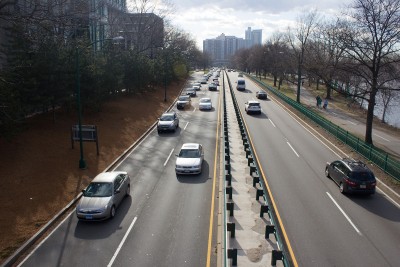
The Massachusetts Department of Transportation announced plans Friday to improve its roadway inspection process after a woman was killed by a loose manhole cover in February, according to a statement released Friday from Highway Administrator Thomas Tinlin.
Tinlin said in the statement that MassDOT plans to improve the commonwealth’s infrastructure to improve safety for its citizens.
“The Massachusetts Department of Transportation (MassDOT) is stepping up its inspection policies of infrastructure in the Metropolitan Highway System to include more rigorous physical testing that exceeds federal requirements and will throughout the course of regularly scheduled replacements, maintenance and/or construction, install bolted down manhole covers in high speed travel lanes throughout the Commonwealth,” Tinlin said in the statement.
Ryan Grannan-Doll, spokesperson for MassDOT, wrote in an email that as new infrastructure is created, manhole covers will need to be bolted down to meet the new requirements.
Grannan-Doll wrote in the email that the improvements are a response to an incident wherein a manhole cover struck and killed a driver on Feb. 12. MassDOT does not take responsibility for the incident, as it is still under investigation by the Massachusetts State Police.
According to a MassDOT report outlining manhole inspection policies, the improvements will implement methods used in other states.
“Port of Miami Tunnel & [Chesapeake Bay Bridge-Tunnel] have in-house staff that lift their manholes covers during drain cleaning operations,” the report stated. “Upon clearing, they clean the rim and cover before re-setting the cover and tightening bolts.”
The report provided figures to show that few of the commonwealth’s manhole covers are unsafe.
“MassDOT is estimated to have 1,143 manhole covers within the Metropolitan Highway System, with less than 400 being non-bolted,” the report stated.
Kristina Egan, director of Transportation for Massachusetts, discussed roadway issues that drivers in the commonwealth face.
“About a quarter of the roads in Massachusetts are in either poor or fair condition, so roaders are routinely faced with obstacles like potholes or poor pavement” Egan said. “MassDOT stepping up its efforts to inspect roads is a great thing not only for drivers but for all users of the road, which include cyclists and walkers.”
In light of recent attention to college students who bike to class, Egan discussed how cyclists will benefit from this effort.
“When MassDOT inspects our roads, I anticipate that they’ll be looking not only at driving lanes, but also at bike lanes … in parts of the road where bicyclists will need to be with cars,” Egan said. “A pothole is really bad for a driver, but it’s really, really bad for a cyclist.”
Several Boston residents expressed their concern for the roadway, and many were aware of the Feb. 12 incident.
Stuart Freedman, 57, of Brighton, said inspectors currently do an inadequate job of inspecting Boston roadways.
“They’re probably short-handed, they don’t have enough inspectors or the inspectors are having a drink at the bar while they’re supposed to be working” he said. “But if they’re going to go out there and make sure the roads are safe, I have no problem with that.”
Romana Vysatova, 51, of Allston, said other areas of Massachusetts seem to receive more infrastructure funding than Boston does.
“I don’t think that they have done very much, but it seems like Cambridge has,” she said.
Steve Slater, 72, of Brighton, described dangers caused by potholes and other roadway flaws.
“If there are potholes, people swerve and they run into other people, you damage your car,” he said. “Any irregularities in the road should be addressed. It’s tougher in the city as well because it’s very busy. There’s never a quiet time when they can do work.”

















































































































